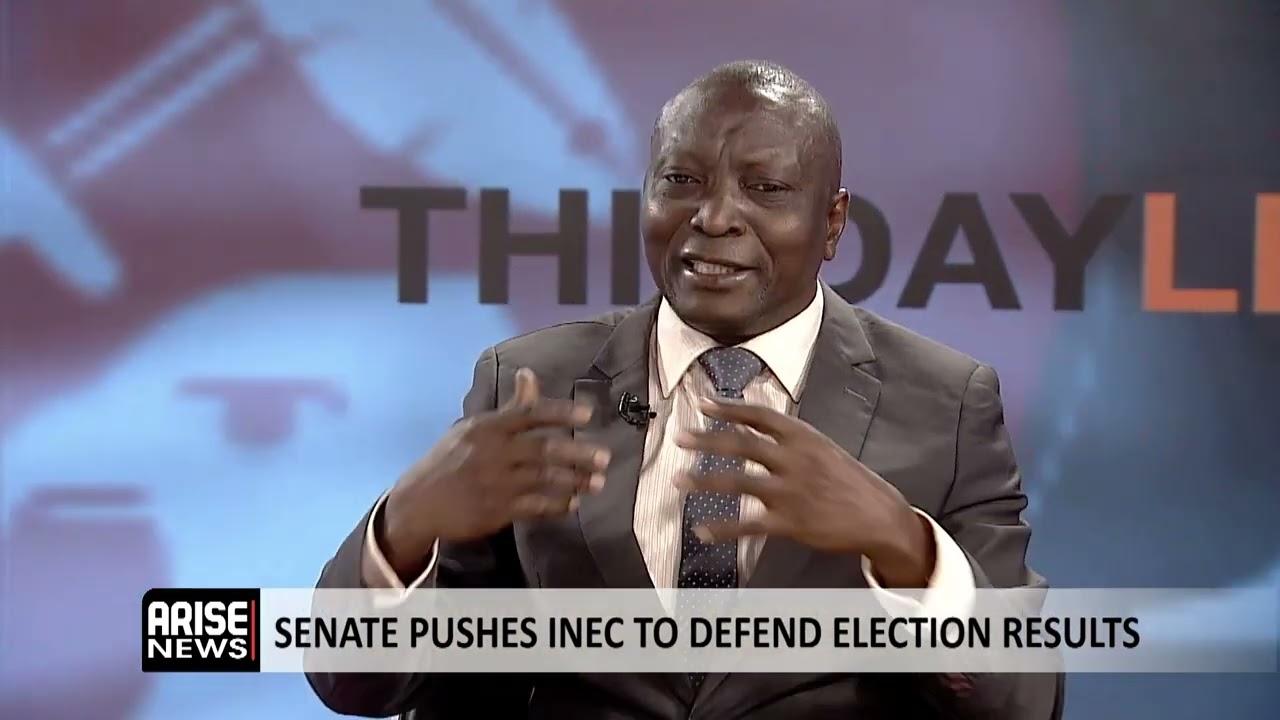
Five years after the #EndSARS protests, Executive Director of Enough Is Enough (EiE), Yemi Adamolekun, says the Nigerian government has failed to learn critical lessons from the movement and continues to treat its citizens as adversaries rather than partners in nation-building.
Speaking in an interview with ARISE News on Sunday, Adamolekun recounted her experience at the Lekki Toll Gate during the fifth anniversary of the protests, where she was harassed by security operatives for laying a wreath in honour of victims.
“There were only two of us at the Lekki Toll Gate on Monday, October 20. I had flowers, and another lady was recording me as I placed them,” she said. “The police, army, civil defence, Lagos Security Network, and Man O’ War were all there—at a toll gate where no protest was happening. The commissioner of police even arrived with a 15-car convoy in a show of force. For what, I really don’t know.”
Adamolekun described how officials of Man O’ War, acting on police orders, destroyed the flowers, claiming they were a “threat.”
“I told the officer, ‘Flowers are a threat? How is this flower upsetting your life?’” she said. “Their problem, they claimed, was that we were recording a police formation. But it was a public space. She was recording me placing the flowers, not them. That’s how the Nigerian state behaves — it fears its own people.”
The activist lamented the government’s persistent framing of peaceful protesters as arsonists, saying it reflects a wider pattern of hostility towards citizens.
“The government still sees its citizens as enemies, as opponents,” she stated. “It was not peaceful protesters that set anything on fire in Lagos. There were criminals, as in any society, and it is the job of the police to protect citizens. But when we called the police in 2020 to report those exploiting the protests to cause trouble, they told us, ‘You’re protesting against the police, what do you want us to do?’”
Adamolekun criticised what she described as “a deliberate abdication of responsibility” by security agencies, adding that this led to the chaos and breakdown of law and order that followed.
Reflecting on the continued denial of the events at Lekki and the lack of accountability, she said Nigeria cannot move forward without confronting its past.
“Five years later, a lot of questions remain unanswered, a lot of healing undone,” she said. “From the Biafran War to #EndSARS, the Nigerian state refuses to acknowledge the pain of its citizens. Until these things are addressed, Nigerians will continue to remember—because those who forget their history lose their identity.”
Adamolekun also addressed broader governance issues, urging leaders to rely on data and transparency in policymaking. She noted that on matters such as religious killings and international scrutiny, the government’s defensive responses lack credibility.
“People who go to America to present their case do so with data—records of churches razed, numbers of people killed,” she explained. “The government cannot afford to respond emotively. The only credible answer is data.”
The EiE director further clarified misconceptions about Nigeria’s recent removal from the Financial Action Task Force (FATF) grey list, saying it was a process that began years before the current administration.
“We were first listed in 2001 and delisted in 2006. A review done between 2019 and 2021 led to 84 points of concern. We addressed 69 before being grey-listed again in 2023. The 15 remaining points were cleared recently,” she said. “It’s important to recognise that this progress is institutional, not the achievement of one administration alone.”
On Kenya, Adamolekun offered a nuanced counterpoint to tributes for the late opposition leader Raila Odinga, saying his political life was also defined by a quest for power.
“Raila Odinga was about power,” she argued. “He mobilised people in the name of democracy but was driven by the pursuit of office. President Ruto’s grand state funeral was not just a tribute—it was also political strategy.”
Concluding her remarks, Adamolekun stressed that for democracy to thrive, Nigeria must build trust between citizens and the state, grounded in justice, truth, and accountability.
“Until every Nigerian feels safe, and until government sees citizens as partners, not enemies, we will keep repeating the same painful cycle,” she said.
Boluwatife Enome

